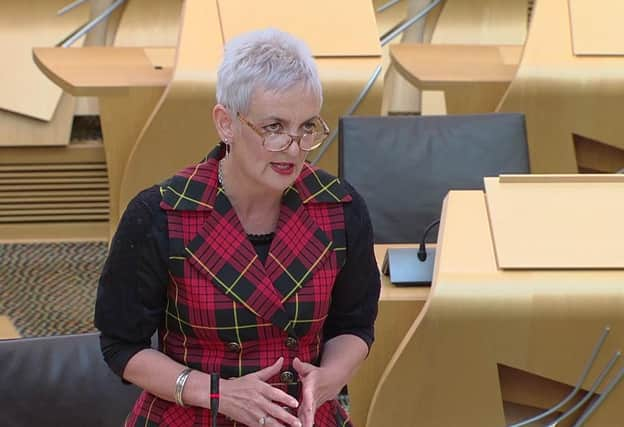Readers letters: Scotland's drug policy needs quality reform


Drug problem must have quality reform
The SNP Government, it's ministers and MSPs have collectively accepted that the drugs related deaths recorded in Scotland is "our national shame".
First minister Nicola Sturgeon accepts that she "took her eye off the ball" at the time figures were published for 2019, but has been eerily silent on the deaths recorded for 2020. This is her "national shame".
Advertisement
Hide AdAdvertisement
Hide AdDrug deaths have unrelentingly increased year on year on the SNP's watch. For the calendar year 2019 there were 1280 recorded drugs related fatalities in Scotland; this figure increases to 1339 for 2020.
To me that's not a five per cent increase as presented by the Scottish government's National Records of Scotland, it's an additional 59 people and the concomitant affects on families, friends and acquaintances.
Nationalists call for drug policy reform and the end of the war on drugs, now 50 years old and so beloved of avid right wingers, Ronald and Nancy Reagan.
They are right but it's the "quality" of that reform across the UK and globally that counts, not some siren call to devolve drug laws to Holyrood and we shall see how it goes from there.
Advertisement
Hide AdAdvertisement
Hide AdI have seen nothing from the SNP (with a couple of exceptions) that shows a degree of maturity for reform that is required across the four nations and wider.
After all, drugs deaths in Scotland are 3.5 times those in England and we have the same laws, austerity and cuts, including to local authorities.
Media images when publishing articles about "drugs" invariably conjure up inappropriate feelings resulting in stigma and shame, not the emphasis we should be attributing to those in a health emergency, certainly not in Scotland.
Douglas McBean, West Pilton Way, Edinburgh.
Children’s mental health needs support
With many Scottish schools returning this week, we share the concern of paediatricians that children may experience quite a big trauma, with anxiety already growing over the impact of the Covid pandemic on child mental health.
Advertisement
Hide AdAdvertisement
Hide AdWith increases in depression, anxiety, eating disorders and self-harm, it is clear that the pandemic has had a major impact on many of our children, and a number of pupils will view the return to schools with further alarm.
This is only to be expected after 18 months of disrupted schooling and will affect older pupils more profoundly.
In the worst case scenario we may see an increase in those more vulnerable children being admitted to hospital in a state of crisis, while less vulnerable ones experience increasingly depressive episodes and symptoms of eating disorders.
Schools have a crucial role to play in supporting children’s mental health and wellbeing. If we are to give our children and young people the best possible start in life, the Scottish Government must give our fantastic teachers, educational professionals and support services the vital resources they need in order to deliver this.
Advertisement
Hide AdAdvertisement
Hide AdKenny Graham, Lynn Bell, Stephen McGhee, Niall Kelly, The Scottish Children’s Services Coalition.
Tommy Cooper way to EU membership
Your correspondent Alex Orr (Letters, 16 August) tells us that ‘Scotland could join the EU without needing to adopt the euro’. The euro is the least of his worries.
Scotland is not qualified to join the EU, and would not be if it left the UK. As SNP leaders are aware, Scots overwhelmingly want to continue to use the £. But if Scotland left the UK, the £ would be a third country’s currency, which is prohibited for EU members.
Before you join the EU, you need to have your own currency and control of your own monetary policy, which would not be the case if Scotland used the £ informally - which is the only way it could use the £. Not having its own functioning central bank or lender of last resort would be added impediments, before one even mentions Scotland’s massive deficit.
Advertisement
Hide AdAdvertisement
Hide AdMr Orr mentions Sweden and Denmark as having abstained from joining the eurozone. They joined the EU in 1995 and 1973, respectively, so were EU members before the euro was conceived. Like the UK did, they can choose to remain outside the eurozone. New members must commit to joining it.
The SNP claims Scotland can follow a ‘Scandinavian model’ of ‘independent nations. And how would they manage it? Perhaps, like Tommy Cooper, they think it would happen ‘just like that!’
Jill Stephenson, Edinburgh.
Comment Guidelines
National World encourages reader discussion on our stories. User feedback, insights and back-and-forth exchanges add a rich layer of context to reporting. Please review our Community Guidelines before commenting.